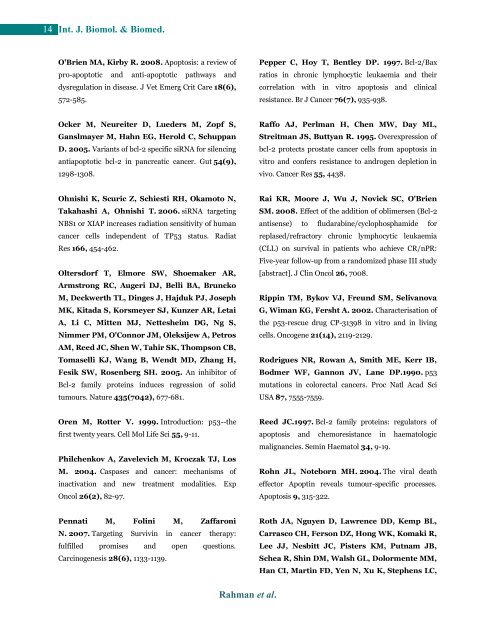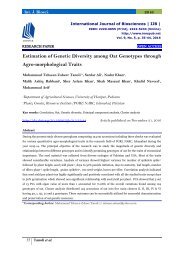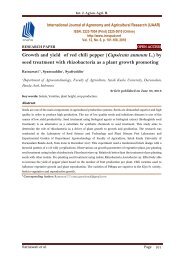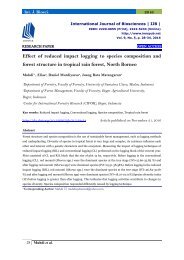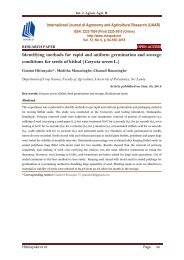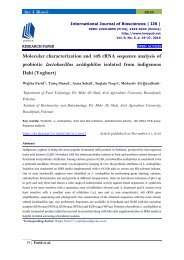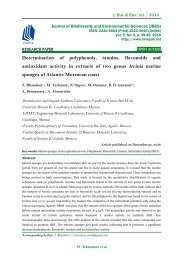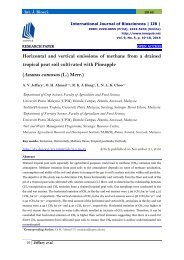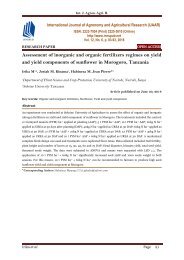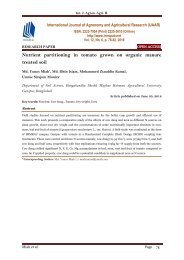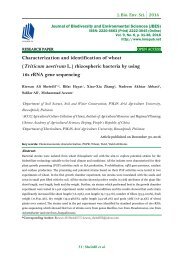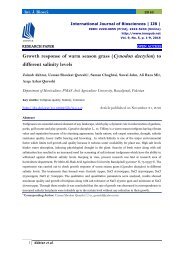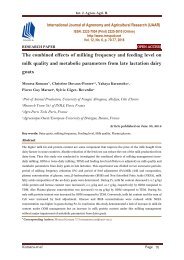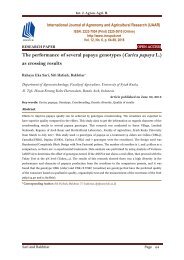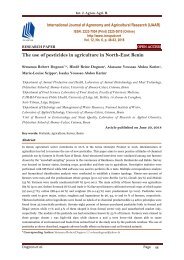Apoptosis and cancer: insights molecular mechanisms and treatments
Apoptosis is a form of cell death that permits the removal of damaged, senescent or unwanted cells in multicellular organisms, without damage to the cellular microenvironment, but it is also involved in a wide range of pathological processes, including cancer. An understanding of the underlying mechanism of apoptosis is important as it plays a pivotal role in the pathogenesis of many diseases. Defective apoptosis represents a major causative factor in the development and progression of cancer. The majority of chemotherapeutic agents, as well as radiation, utilize the apoptotic pathway to induce cancer cell death. Recent knowledge on apoptosis has provided the basis for novel targeted therapies that exploit apoptosis to treat cancer by acting in the extrinsic/intrinsic pathway. Defects can occur at any point along these pathways, leading to malignant transformation of the affected cells, tumour metastasis and resistance to anticancer drugs. In particular, this review provides references concerning the apoptotic molecules, their interactions, the mechanisms involved in apoptosis resistance, and also the modulation of apoptosis for the treatment of cancer. Despite being the cause of problem, apoptosis plays an important role in the treatment of cancer as it is a popular target of many treatment strategies.
Apoptosis is a form of cell death that permits the removal of damaged, senescent or unwanted cells in multicellular organisms, without damage to the cellular microenvironment, but it is also involved in a wide range of pathological processes, including cancer. An understanding of the underlying mechanism of apoptosis is important as it plays a pivotal role in the pathogenesis of many diseases. Defective apoptosis represents a major causative factor in the development and progression of cancer. The majority of chemotherapeutic agents, as well as radiation, utilize the apoptotic pathway to induce cancer cell death. Recent knowledge on apoptosis has provided the basis for novel targeted therapies that exploit apoptosis to treat cancer by acting in the extrinsic/intrinsic pathway. Defects can occur at any point along these pathways, leading to malignant transformation of the affected cells, tumour metastasis and resistance to anticancer drugs. In particular, this review provides references concerning the apoptotic molecules, their interactions, the mechanisms involved in apoptosis resistance, and also the modulation of apoptosis for the treatment of cancer. Despite being the cause of problem, apoptosis plays an important role in the treatment of cancer as it is a popular target of many treatment strategies.
Create successful ePaper yourself
Turn your PDF publications into a flip-book with our unique Google optimized e-Paper software.
14 Int. J. Biomol. & Biomed.<br />
O'Brien MA, Kirby R. 2008. <strong>Apoptosis</strong>: a review of<br />
pro-apoptotic <strong>and</strong> anti-apoptotic pathways <strong>and</strong><br />
dysregulation in disease. J Vet Emerg Crit Care 18(6),<br />
572-585.<br />
Pepper C, Hoy T, Bentley DP. 1997. Bcl-2/Bax<br />
ratios in chronic lymphocytic leukaemia <strong>and</strong> their<br />
correlation with in vitro apoptosis <strong>and</strong> clinical<br />
resistance. Br J Cancer 76(7), 935-938.<br />
Ocker M, Neureiter D, Lueders M, Zopf S,<br />
Ganslmayer M, Hahn EG, Herold C, Schuppan<br />
D. 2005. Variants of bcl-2 specific siRNA for silencing<br />
antiapoptotic bcl-2 in pancreatic <strong>cancer</strong>. Gut 54(9),<br />
1298-1308.<br />
Raffo AJ, Perlman H, Chen MW, Day ML,<br />
Streitman JS, Buttyan R. 1995. Overexpression of<br />
bcl-2 protects prostate <strong>cancer</strong> cells from apoptosis in<br />
vitro <strong>and</strong> confers resistance to <strong>and</strong>rogen depletion in<br />
vivo. Cancer Res 55, 4438.<br />
Ohnishi K, Scuric Z, Schiesti RH, Okamoto N,<br />
Takahashi A, Ohnishi T. 2006. siRNA targeting<br />
NBS1 or XIAP increases radiation sensitivity of human<br />
<strong>cancer</strong> cells independent of TP53 status. Radiat<br />
Res 166, 454-462.<br />
Oltersdorf T, Elmore SW, Shoemaker AR,<br />
Armstrong RC, Augeri DJ, Belli BA, Bruncko<br />
M, Deckwerth TL, Dinges J, Hajduk PJ, Joseph<br />
MK, Kitada S, Korsmeyer SJ, Kunzer AR, Letai<br />
A, Li C, Mitten MJ, Nettesheim DG, Ng S,<br />
Nimmer PM, O'Connor JM, Oleksijew A, Petros<br />
AM, Reed JC, Shen W, Tahir SK, Thompson CB,<br />
Tomaselli KJ, Wang B, Wendt MD, Zhang H,<br />
Fesik SW, Rosenberg SH. 2005. An inhibitor of<br />
Bcl-2 family proteins induces regression of solid<br />
tumours. Nature 435(7042), 677-681.<br />
Rai KR, Moore J, Wu J, Novick SC, O'Brien<br />
SM. 2008. Effect of the addition of oblimersen (Bcl-2<br />
antisense) to fludarabine/cyclophosphamide for<br />
replased/refractory chronic lymphocytic leukaemia<br />
(CLL) on survival in patients who achieve CR/nPR:<br />
Five-year follow-up from a r<strong>and</strong>omized phase III study<br />
[abstract]. J Clin Oncol 26, 7008.<br />
Rippin TM, Bykov VJ, Freund SM, Selivanova<br />
G, Wiman KG, Fersht A. 2002. Characterisation of<br />
the p53-rescue drug CP-31398 in vitro <strong>and</strong> in living<br />
cells. Oncogene 21(14), 2119-2129.<br />
Rodrigues NR, Rowan A, Smith ME, Kerr IB,<br />
Bodmer WF, Gannon JV, Lane DP.1990. p53<br />
mutations in colorectal <strong>cancer</strong>s. Proc Natl Acad Sci<br />
USA 87, 7555-7559.<br />
Oren M, Rotter V. 1999. Introduction: p53--the<br />
first twenty years. Cell Mol Life Sci 55, 9-11.<br />
Philchenkov A, Zavelevich M, Kroczak TJ, Los<br />
M. 2004. Caspases <strong>and</strong> <strong>cancer</strong>: <strong>mechanisms</strong> of<br />
inactivation <strong>and</strong> new treatment modalities. Exp<br />
Oncol 26(2), 82-97.<br />
Reed JC.1997. Bcl-2 family proteins: regulators of<br />
apoptosis <strong>and</strong> chemoresistance in haematologic<br />
malignancies. Semin Haematol 34, 9-19.<br />
Rohn JL, Noteborn MH. 2004. The viral death<br />
effector Apoptin reveals tumour-specific processes.<br />
<strong>Apoptosis</strong> 9, 315-322.<br />
Pennati M, Folini M, Zaffaroni<br />
N. 2007. Targeting Survivin in <strong>cancer</strong> therapy:<br />
fulfilled promises <strong>and</strong> open questions.<br />
Carcinogenesis 28(6), 1133-1139.<br />
Roth JA, Nguyen D, Lawrence DD, Kemp BL,<br />
Carrasco CH, Ferson DZ, Hong WK, Komaki R,<br />
Lee JJ, Nesbitt JC, Pisters KM, Putnam JB,<br />
Schea R, Shin DM, Walsh GL, Dolormente MM,<br />
Han CI, Martin FD, Yen N, Xu K, Stephens LC,<br />
Rahman et al.


